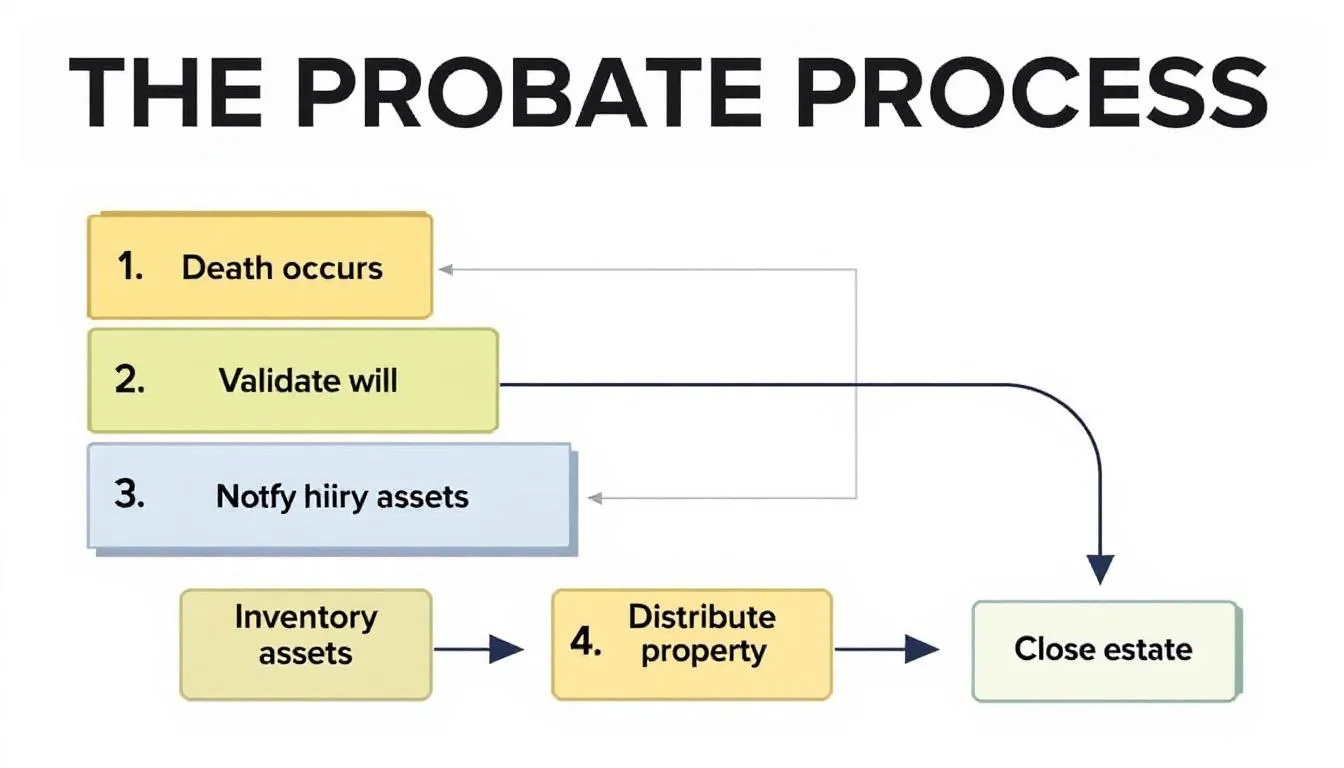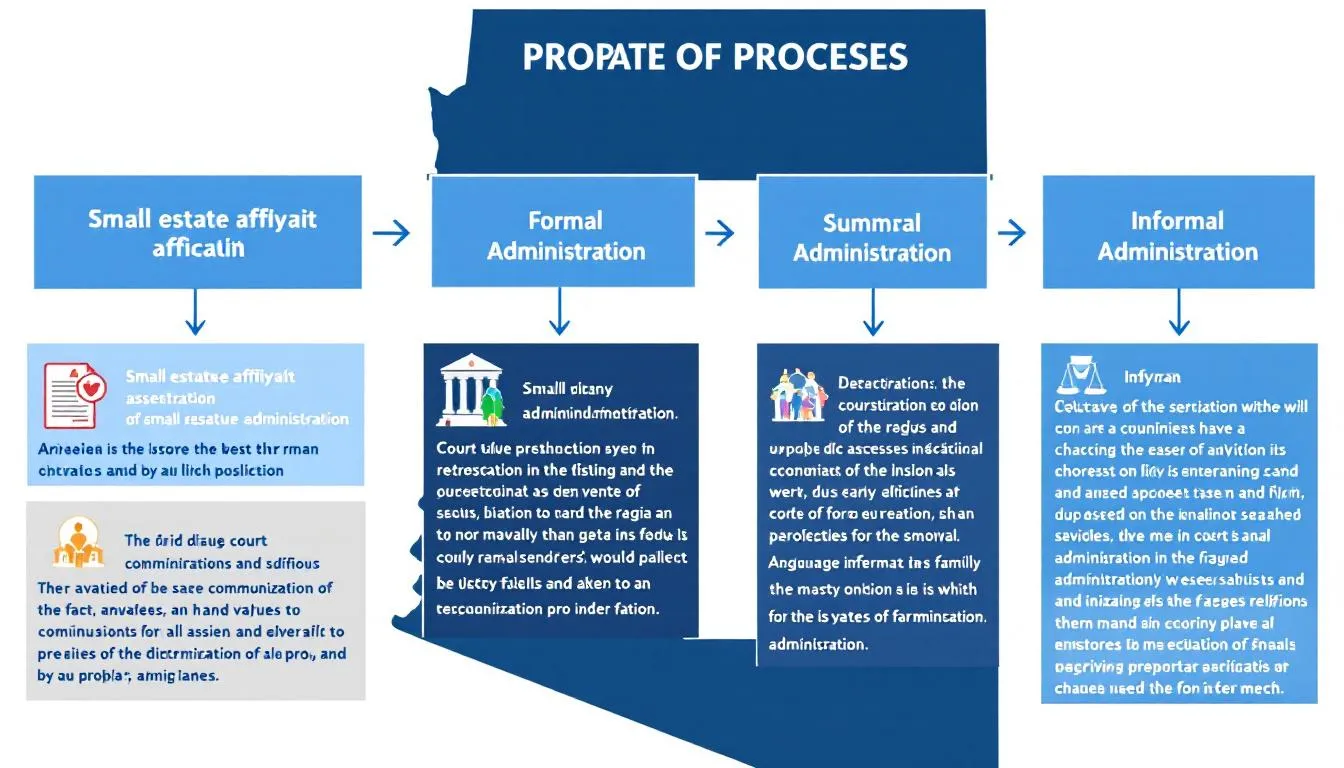Selling a house can be a complicated and emotional process, especially when it comes to selling a house in probate. For many families, selling a house in probate can be an overwhelming process due to the complexity and stress involved in managing a loved one’s estate. When a loved one passes away, their assets become part of their estate, which typically goes through probate court before being distributed to heirs and beneficiaries. Probate begins when an interested party files the will and a petition with the probate court. Probate laws can vary from state to state, which is why it’s important to understand the specific requirements for selling a house in probate in Arizona. In this article, we’ll break down the process of selling a house in probate, discuss the Arizona probate laws you need to know, and offer some tips to help make the process as smooth as possible. Whether you’re an executor, heir or beneficiary, this guide will provide you with the information you need to successfully sell a house in probate in Arizona.

1. What is Probate and Why is it Important?
Probate is a legal process that takes place after a person passes away, specifically after a person’s death or when a person dies. It is the process of administering a deceased person’s estate, also referred to as the decedent’s estate, to ensure that their debts are paid, and their assets are distributed to their heirs. See Ariz. Rev. Stat. § 14-1101 et al. Probate is important because it provides a way for the court to oversee the distribution of the deceased person’s assets. The court oversees the process to ensure the deceased person’s estate is properly probated and that assets are distributed according to the decedent’s wishes. Probate is required to transfer ownership of the deceased person’s assets after death. This helps to prevent any disputes or conflicts that may arise among the beneficiaries of the estate. In Arizona, the probate process can be complex and lengthy, especially if the deceased did not create a will or estate plan. The personal representative must notify inheritors and creditors about the estate within 30 days of the person’s death. For those who are selling a house in probate in Arizona, it is important to understand the probate laws and regulations to ensure a smooth and successful sale. It is essential to work with a real estate agent who is knowledgeable about the probate process and can guide you through the legal requirements and paperwork. Selling a house in probate can be a challenging experience, but with the right guidance and support, it can be a successful and profitable venture.
2. Types of Probate in Arizona
In Arizona, the probate process can take several different forms, depending on the size and complexity of the deceased person’s estate and whether there are any disputes among heirs or beneficiaries. The three main types of probate are formal probate, informal probate, and supervised probate.
Formal probate is typically used when there are disagreements about the will, questions about the validity of documents, or conflicts among heirs. In this process, the probate court is more actively involved, holding hearings and making decisions to resolve disputes. This type of probate ensures that the court oversees the distribution of assets and the actions of the personal representative, providing a higher level of scrutiny and protection for all parties involved. Supervised probate involves the court overseeing all actions of the personal representative during the probate process.
Informal probate is the most common type of probate in Arizona. It is generally used when the will is clear, uncontested, and the estate is straightforward. In informal probate, the court’s involvement is minimal, and the process is usually faster and less expensive. The personal representative can manage the estate’s assets and distribute property to heirs with limited court supervision, making it a more streamlined option for many families. In Arizona, informal probate requires minimal court supervision.
Supervised probate is required when the court determines that additional oversight is necessary, often to protect the interests of a minor, incapacitated heir, or when the estate is particularly complex. In supervised probate, the court oversees every step of the process, from asset management to final distribution, ensuring that the estate is handled according to Arizona probate law and the best interests of all beneficiaries. The supervised probate process is the most extensive, requiring court approval for each action taken by the personal representative.

Understanding which type of probate applies to your situation can help you and your family navigate the process more confidently and ensure that the estate is settled in accordance with the deceased person’s wishes and Arizona law. Each type of probate process in Arizona affects how an estate is administered and how quickly issues are resolved.
2. Overview of Probate Laws in Arizona
Probate is the legal process by which a person’s estate is settled after they pass away. In Arizona, probate can be a lengthy and complicated process, especially if you are selling a house in probate. It is important to understand the probate laws in Arizona before you start the process of selling a house in probate. In Arizona, there are three types of probate: informal, formal, and supervised. Informal probate is the most common type of probate in Arizona and is used for estates with a value of less than $100,000. Formal probate is used for larger estates or when there are disputes among family members. Supervised probate is less common and is used when there are complex issues involved. Certain assets, such as those held in community property or joint tenancy, may not require probate, unlike other property that must go through the probate process.
One of the most important things to know about probate in Arizona is that it can take a long time – sometimes up to a year or more – to settle an estate. During this time, the estate’s personal representative (also known as the executor) is responsible for managing the property and assets of the deceased. If you are selling a house in probate, you may need to get permission from the court before you can sell the property. In other cases, the probate process may take longer or require additional legal steps, especially if the property is not pre-approved for sale or if there are disputes.
Another important thing to know about probate in Arizona is that there are fees involved. These fees can include court fees, attorney fees, and executor fees. It is important to keep these fees in mind when you are selling a house in probate, as they can eat into your profits. Overall, if you are selling a house in probate in Arizona, it is important to work with an experienced real estate agent who understands the probate laws in the state. For additional guidance, you should contact a probate attorney or professional. With the right guidance, you can navigate the probate process effectively and sell your house for a fair price.
4. The Role of the Probate Attorney
A probate attorney is an invaluable resource during the probate process, guiding the personal representative or executor through the legal aspects of settling a deceased person’s estate. From the very beginning, a probate attorney assists with filing the necessary documents with the probate court and ensures that all legal requirements are met. They help identify and manage both real property and personal property, making sure that all assets are properly accounted for and protected.
The probate attorney also provides expert advice on Arizona probate law, helping the personal representative navigate complex issues such as creditor claims, tax obligations, and the distribution of assets to beneficiaries. If any disputes arise among heirs or other interested parties, the probate attorney can represent the estate in court and work to resolve conflicts efficiently.
In addition, the probate attorney assists with the payment of the estate’s debts and ensures that all filings and reports required by the probate court are completed accurately and on time. By working closely with the personal representative, the probate attorney helps manage the estate’s assets, protect the interests of beneficiaries, and ensure that the entire process is handled smoothly and in compliance with the law. Having a knowledgeable probate attorney on your side can make a significant difference in managing the estate and achieving a fair and timely resolution for everyone involved.
5. Probate Process Timeline in Arizona
The probate process in Arizona can vary widely, depending on the size and complexity of the estate, the type of probate required, and whether any disputes arise. Generally, the process begins with the filing of a petition with the probate court to appoint a personal representative or executor. Once appointed, the personal representative is responsible for gathering and managing the estate’s assets, notifying creditors, and paying any outstanding debts.
Throughout the entire process, the probate court oversees the actions of the personal representative, requiring regular filings and accountings to ensure that the estate is being managed properly. Informal probate can often be completed in as little as six months if there are no complications, while formal or supervised probate may take a year or longer, especially if there are disputes or complex assets involved.
The personal representative must also ensure that all beneficiaries receive their share of the estate once debts and expenses have been paid. Delays can occur if there are challenges to the will, difficulties in locating heirs, or issues with creditors. Because the probate process can be overwhelming, especially during a difficult time, many families choose to work with a probate attorney to help navigate the legal requirements and keep the process on track.
Understanding the typical probate process timeline in Arizona can help you set realistic expectations and plan accordingly, ensuring that your loved one’s estate is settled as efficiently and smoothly as possible.
3. Selling a House in Probate in Arizona – The Process
Selling a house in probate in Arizona can seem like a daunting task, but it doesn’t have to be. In general, the process of selling a house in probate in Arizona involves a few basic steps. First, the executor of the estate must be appointed. This is usually done by the court, and attorneys or professionals can assist with the estate or trust administration to help guide executors or family members through the complex probate process. Once the executor has been appointed, they must obtain an appraisal of the property. This will help to determine the value of the property and the potential sale price. Probate properties may be sold below market value to facilitate a timely sale and settle estate debts. Probate properties are often sold as a necessity to pay off debts. Next, the executor must list the property for sale. This is done through a real estate agent or other means of advertising. Probate real estate is often sold as is, meaning no repairs or renovations will be made before the sale, so buyers should conduct inspections beforehand.
Once a buyer is found, the sale must be approved by the court. Buyers may be required to make the purchase with cash or certified funds during the court sale process. This can take some time, as the court will need to review the sale and make sure that it is in the best interests of the estate. When purchasing probate real estate, it is important to complete inspections and appraisals before finalizing the purchase. Once the sale is approved, the executor can complete the sale and distribute the proceeds to the beneficiaries of the estate. Inherited property is transferred to heirs through the probate process.
It’s important to work with an experienced real estate agent who understands the probate process and can help guide you through the steps to ensure a smooth sale. A knowledgeable agent can assist with the unique challenges of selling probate real estate and help you achieve top dollar for the property.
4. Tips for Selling a House in Probate in Arizona.
Selling a house in probate can be a complex and time-consuming process, especially if you are not familiar with the probate laws of Arizona. Dealing with the complexities of probate often requires professional support to ensure all legal and administrative requirements are met. However, there are certain steps you can take to make the process easier and smoother. Here are some tips for selling a house in probate in Arizona:
Hire a probate attorney: A probate attorney can help you navigate through the legal process of selling a house in probate. They can also help you settle any disputes that may arise during the probate process. Attorneys and professionals can act on your behalf to handle legal filings, estate settlement, and other necessary services.
Appraise the property: It is important to get an accurate appraisal of the property to determine its value. This will help you set a realistic price for the property when it goes on the market.
Determine who has the authority to sell the property: In Arizona, the executor of the estate has the authority to sell the property. If there is no executor, the court will appoint one.
Prepare the property for sale: This includes cleaning, repairing any damages, and staging the property for showings.
Find a real estate agent: A real estate agent who has experience in selling probate properties can help you market the property and find potential buyers. Comprehensive probate and trust administration services can also assist with managing trust assets and streamlining the entire process.
Disclose all information: It is important to disclose all known issues with the property to potential buyers, including any existing liens or debts.

Selling a house in probate can be a challenging process, but by following these tips, you can ensure a smoother and more successful sale.
- About the Author
- Latest Posts
Peter graduated from the Arizona State University Sandra Day O’Connor College of Law. His work background is Christian Ministry, Commercial/Residential Property Management, and Real Estate. He is passionate about protecting elders, helping families, and guarding business and personal assets. Peter loves researching, especially the liability regimes within Estates and Probate.
- Is it ok for parties to leverage children to get what they want in family court custody cases?
- Arizona Inheritance Law: What Happens When Someone Dies Without a Will in Arizona?
- Understanding the Estate Planning Trust: Types and Benefits Explained
- What does it mean to create a Living Trust in Arizona?
- What is the Corporate Transparency Act and why is it important for an Arizona Limited Liability Company (LLC)?